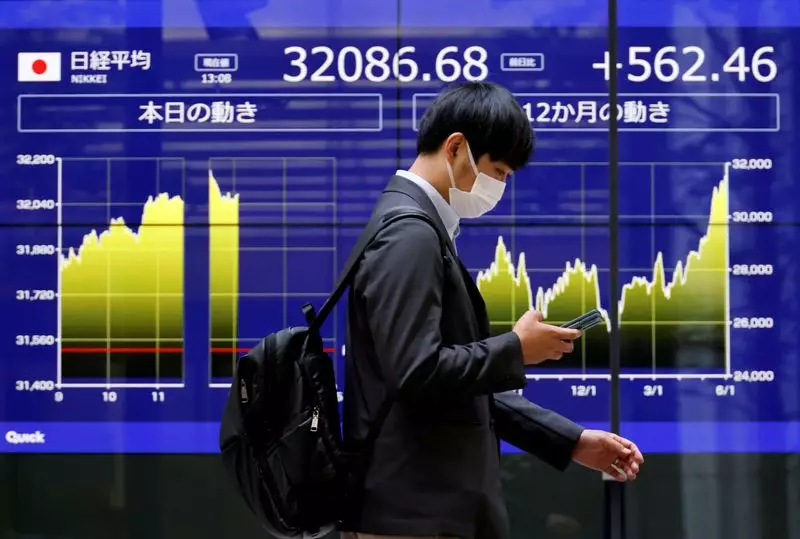The recent downturn in Wall Street has had a significant impact on Asian markets, with shares falling and Treasury yields nearing five-month lows. This comes as investors hope that Britain’s soft inflation reading will also be reflected in the upcoming U.S. price data. However, despite initial positive economic data in the U.S., the equities rally driven by falling interest rates and the Federal Reserve’s dovish turn came to a halt, leading to a retreat in the major indexes. In this article, we will analyze the reasons behind this downturn and delve into the potential consequences for the Asian markets.
One of the main factors contributing to the downturn in Wall Street is the overbought market, as optimism surrounding rate cuts ran out of steam. The sharp retreat in the late session after hitting intraday highs suggests a potential correction in the market. Additionally, global government bond yields have accelerated their decline due to risk-off sentiment, further impacting the market.
Asian Markets Reaction
The news of Wall Street’s downturn quickly spread to Asian markets, leading to a decline in the broadest index of Asia-Pacific shares outside Japan. This index has experienced a 0.6% decrease, erasing some of the gains made earlier in the month. The negative sentiment also affected Australia and Japan, where their respective stock indexes fell by 0.4% and 1.49%. China’s blue-chip CSI300 index remained flat, but it is on track for its worst weekly performance in 12 years and a record fifth consecutive monthly loss. Similar trends were observed in Hong Kong’s Hang Seng index, which opened down by 0.86%.
Implications for Asian Economies
The impact of Wall Street’s downturn on Asian economies cannot be overlooked. With declining stock indexes and potential record losses, this situation raises concerns about the overall health of the Asian markets. It also highlights the vulnerability of these economies to global market fluctuations. As a result, investors will closely monitor the Indonesian central bank’s policy decision, consumer price inflation and trade figures from Hong Kong, and producer price inflation data from South Korea. These reports will shed further light on the current economic conditions in the region.
The Role of U.S. Treasury Yields
The decline in Wall Street has also had a direct impact on U.S. Treasury yields, as investors seek safer investment options. The benchmark 10-year Treasury notes reached a five-month low, reflecting the risk-off sentiment. Furthermore, the two-year yield, which indicates traders’ expectations of higher Fed fund rates, also decreased. These lower yields not only reflect market uncertainty but also suggest a shift in investors’ preference for less risky assets.
The dollar index, which tracks the performance of the greenback against other major trading partners, experienced a decline due to the Wall Street downturn. This decline was particularly noticeable against the British pound, with speculations of potential rate cuts by the Bank of England following the soft inflation reading. In contrast, the euro appreciated slightly against the dollar.
The commodity market also felt the effects of the downturn, with global oil benchmark Brent hovering above $80 a barrel. This increase can be attributed to concerns over global trade disruptions and geopolitical tensions in the Middle East following attacks on ships by Yemen’s Iran-aligned Houthi forces. However, U.S. crude experienced a slight dip, indicating the volatility and uncertainty surrounding the oil market. Gold, on the other hand, saw a slight increase, reaffirming its status as a safe-haven asset during times of market instability.
Wall Street’s recent downturn has reverberated across Asian markets, leading to declines in stock indexes and increased market volatility. The Asian economies are now facing challenges in maintaining stability and will have to carefully strategize to weather the storm. As investors monitor key economic indicators, it is crucial for policymakers in these countries to take proactive measures to mitigate potential risks and foster economic growth in this uncertain environment.


Leave a Reply